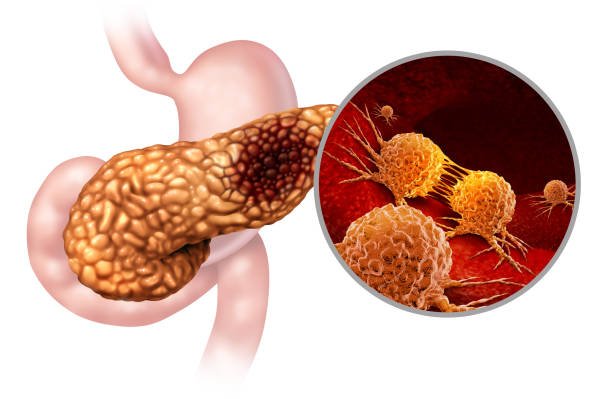Pancreatic cancer treatment in India
Cost of pancreatic cancer treatment in different cities in India
The cost of pancreatic cancer treatment in India differs across the cities. Tier one cities are generally more expensive compared to tier two cities. The cost of Pancreatic Cancer in various cities in India is given below:
| City Name | Cost in USD | Cost in INR |
| New Delhi | 3384- 5293 | 281385 – 440115 |
| Gurgaon | 3471- 5206 | 288600 – 432900 |
| Noida | 3254 -5423 | 270563 – 450938 |
| Chennai | 3471- 4989 | 288600 – 414863 |
| Mumbai | 3557 – 5293 | 295815 – 440115 |
| Bangalore | 3384- 5119 | 281385 – 425685 |
| Kolkata | 3254 -4903 | 270563 – 407648 |
| Hyderabad | 3341-5076 | 277778 – 422078 |
Cost factors for pancreatic cancer treatment in India
The cost of pancreatic cancer in India depends a number of factors as listed below:
Competition: There are many popular hospitals in India for pancreatic cancer treatment. Patients have so several options to choose from, and hospitals across India provide treatment at mushc affordable prices.
Type of Hospitals: Generally, government hospitals in India provide cancer treatments at free of cost or at much subsidized rates. This is a primary reason for the big cost difference between India and many other countries.
Currency: Indian currency is less value compared to othr currencies such as USD, euros, pound, etc. This is the reason why doctor’s consultation, cancer surgery and treatment costs in India is cost- effective.
Standard of Living: The standard of living of India is lower than developed nations such as the USA, UK, etc. Facilities, such as transport, accommodation, transportation, medical treatment and food are relatively affordable.
Doctors: India boasts highly skilled as well as qualified oncologists who have treated a number of patients at low consultation fees. It is another key reason leading to the cost of pancreatic cancer treatment in India.
Cost comparison in different countries
Cancer treatment may be heavy on the pocket. But, the cost of pancreatic cancer treatment in India is much affordable. India’s medical care quality is on par with all developed countries across the world and provides the quality treatment for all patients. Pancreatic cancer treatment cost is inexpensive compared to developed countries in the world. The cost of pancreatic cancer treatment varies from one country to another depending on the currency, distance, standard of living, etc.
Below table compares the cost of pancreatic cancer treatment in different countries.
| Country Name | Cost in USD | Cost in USD |
| India | 5760 | 478928 |
| Israel | 13,504 | 1122821 |
| Spain | 73306 | 6095199 |
| UAE | 23000 | 1912389 |
| Thailand | 25000 | 2078683 |
| Singapore | 20000 | 1662947 |
| UK | 35000 | 2910157 |
Success rate of pancreatic cancer treatment in India
Up to 10% of patients who are diagnosis early become disease-free following treatment. Patients who are diagnosed quite before tumor grows or spreads, the average survival for pancreatic is 3 to 3.5 years. The success rate for Pancreatic Cancer Treatment in India is around 70-85%. Cancer care Units have excellent facilities to address your medical issues and provide state of-the-art service to patients under a single roof, backed by cutting-edge infrastructure and medical technology.
FAQ
What is pancreatic cancer?
Pancreatic cancer is a form of cancer that start as an uncontrolled growth of cells in your pancreas. This organ is located behind the lower part of stomach and makes enzymes, which help in digesting food as well as hormones that manage your blood sugar. Pancreatic ductal adenocarcinoma is the most common type of pancreatic cancer. This cancer starts in the cells lining the ducts, which transport digestive enzymes from the pancreas. Pancreatic cancer is rarely found in its early stages when the chances of its treatment is highest. This is because this cancer generally does not show symptoms until after it spreads to other organs. The health care team will determine the extent of the pancreatic cancer when planning your treatment. Treatment options might include chemotherapy, surgery, radiation therapy or a combination of these.
What are the symptoms of kidney cancer?
- Pancreatic cancer may the below listed symptoms:
- Belly pain that may spread to the sides or back.
- Weight loss.
- Loss of appetite.
- Dark-colored urine.
- Itching on skin
- Pain as well as swelling in the arm or leg
- Tiredness/ weakness
- Yellowing of the skin and the eyes
- Light-colored and floating stool.
- Upper abdominal pain.
- Nausea and vomiting.
- Blood clots.
- New-onset diabetes.
What are the causes of pancreatic cancer?
Some pancreatic cancer risk factors are listed below:
Smoking cigars, cigarettes and consuming other forms of tobacco.
Diabetes, particularly Type 2 diabetes. Moreover, sudden onset of diabetes might indicate pancreatic cancer.
Obesity, and carrying extra weight around the waist.
Chronic pancreatitis characterized by permanent inflammation in the pancreas.
Exposure to some chemicals such as petrochemicals and pesticides.
Hereditary syndromes with some changes in genes, like BRCA1 and BRCA2 genes transferred from biological parents to child.
Hereditary chronic pancreatitis because of gene changes transferred from biological parents to child.
What are the stages of pancreatic cancer?
There are four stages of pancreatic cancer as discussed below:
Stage 1: The tumor is less than 2 cm in size. It is only located in the pancreas. This stage is hard to diagnose with the help of imaging tests.
Stage 2: The tumor begins to grow outside your pancreas. This has not yet spread in the major blood vesseld. Stage two pancreatic cancer can spread to surrounding lymph nodes but not to far distance.
Stage 3: The tumor grows outside the pancreas and has moved into adjacent major blood vessels or nerves. Stage 3 pancreatic cancer can often not be operated. But this can shrink some of those tumors and operate on them.
Stage 4: The cancer at this stage has spread into other body parts other than the pancreas. These can include the lungs, liver or peritoneum, which is inner lining of your abdomen. There can be some symptoms of the cancer at this stage.
What are the different types of pancreatic cancer?
The types of pancreatic cancer can be divided into two big categories – neuroendocrine pancreatic cancer, and exocrine pancreatic cancer such as adenocarcinoma. Every category has many cancer types that might vary in their prognosis and symptoms.
There are several types of pancreatic cancer as mentioned below:
Adenocarcinoma: This is also called ductal carcinoma and is the most common kind of pancreatic cancer. This type accounts for more than 90% of pancreatic cancers. This occurs in the inner lining of the pancreatic ducts.
Squamous Cell Carcinoma: This cancer type is extremely rare and forms in the pancreatic ducts. This happens due to abnormal growth of squamous cells. There haven’t been enough cases reported for this cancer. Studies have revealed that this cancer has a bad prognosis as most cases are discovered after metastasis.
Adenosquamous Carcinoma: This is rare type of pancreatic cancer and accounts for 1-4% of exocrine pancreatic cancers. In comparison to adenocarcinoma, adenosquamous carcinoma is often more aggressive and has a poorer prognosis. This cancer shows characteristics of both squamous cell carcinoma as well as ductal adenocarcinoma.
Colloid Carcinoma: This cancer is also rare and accounts for 1-3% of exocrine pancreatic cancers. These tumors develop from benign cyst known as an intraductal papillary mucinous neoplasm.
What are different diagnostic tests for pancreatic cancer?
If a person shows signs and symptoms due to pancreatic cancer, some exams and tests will be done to determine the underlying cause.
Medical history & physical exam: The doctor will try to know your medical history to find more about your symptoms. They might also enquire about possible risks such as smoking as well as your family history.
Computed tomography (CT) scan: If the doctor thinks a person might have pancreatic cancer, they might order a special type of CT called multiphase CT scan. In this test, various sets of CT scans are done for several minutes after getting an injection.
Magnetic resonance imaging or (MRI): This scan uses radio waves as well as strong magnets to produce detailed images of body parts. Most doctors would like to see the pancreas with a CT scan, but an MRI can also be done. Special type of MRI can be used in individuals who may have pancreatic cancer or are often at high risk:
Ultrasound: This test uses sound waves to produce images of the pancreas. The most commonly used types of ultrasound for pancreatic cancer are abdominal ultrasound and endoscopic ultrasound.
Cholangiopancreatography: This test is used to look at the pancreatic ducts as well as bile ducts to check if they are blocked, dilated or narrowed. It helps show if anyone has a pancreatic tumor that is blocking a duct. Cholangiopancreatography can also help plan surgery.
Positron emission tomography or PET scan: A person is injected with a slightly radioactive sugar, which gathers in cancer cells. A camera is used to produce a picture of areas showing radioactivity in the body.
Angiography: This is used to see blood vessels with the help of contrast dye that is injected into an artery for outlining the blood vessels.
What are the prevention for pancreatic cancer?
Pancreatic cancer can be prevented through:
Maintaining a healthy weight: Diabetes and obesity have been related to pancreatic cancer, so maintaining a healthy weight is important to reduce both these risk factors. Maintaining a healthy weight involves following a healthy diet and doing regular physical activity.
Sticking to a healthy diet: The diet must include lots of fruits, wholegrains and vegetables. The consumption of red meat has been found to be associated with pancreatic cancer, so people are suggested to limit consumption of red meats. Other sources of healthy protein include poultry, beans, and fish.
Quitting smoking: The overall risk of pancreatic cancer is double among smokers. Nearly 20%-30% of excorine pancreatic tumor is often caused by smoking. Quitting smoking is very important a person to reduce the risk of pancreatic cancer.
Taking Vitamin B: Studies have revealed that vitamin B12 and B6 reduce the overall risk of various cancers such as pancreatic cancer. However, the research finds that this benefit is only seen if the nutrients are got from food and not from vitamin supplements.




